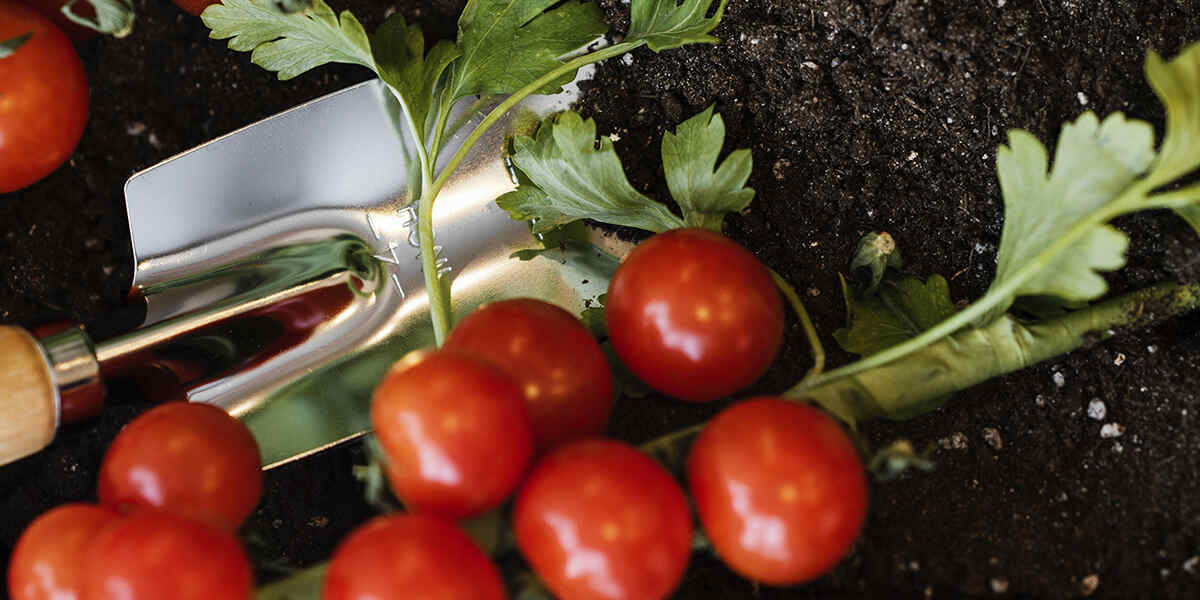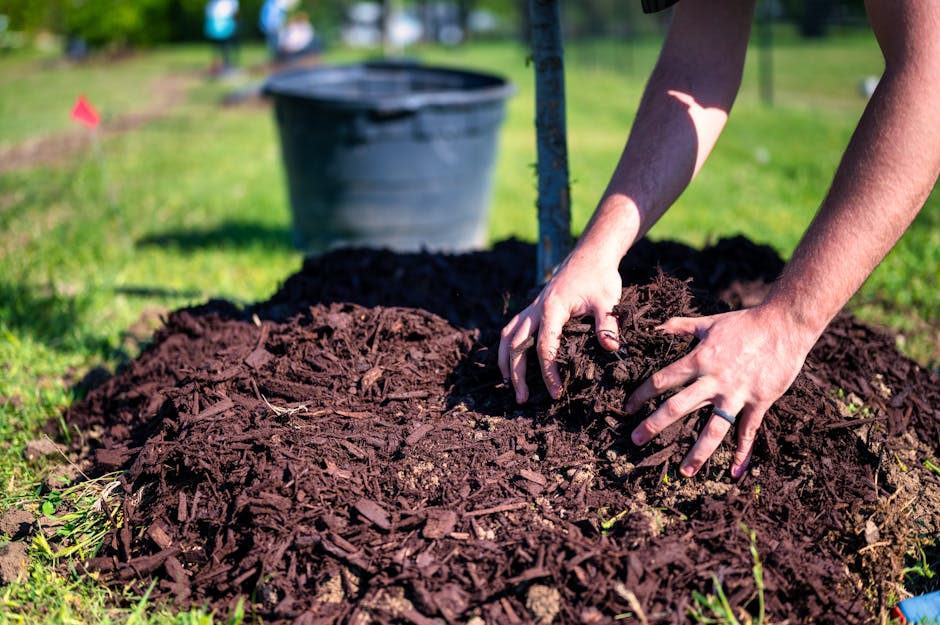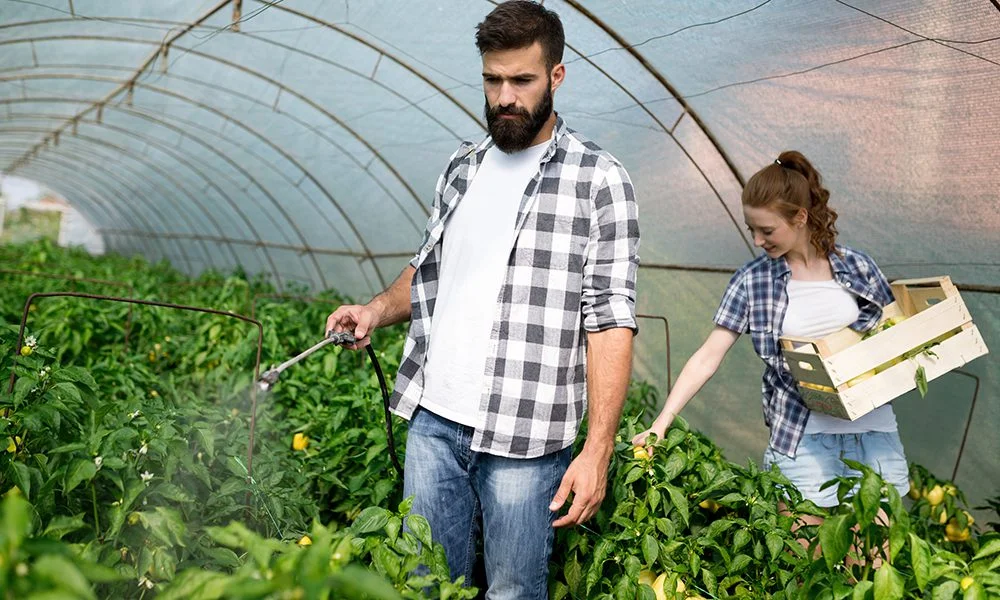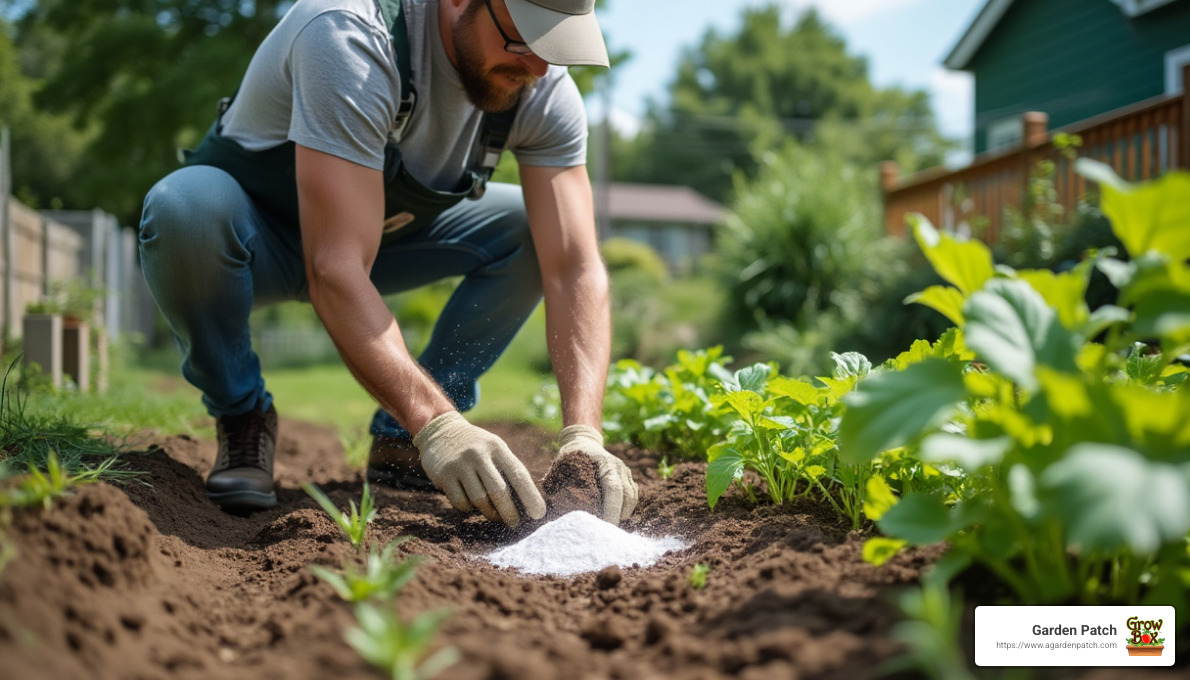How much do you know about the importance of calcium for tomato plants? Actually, calcium is more than just important — it’s a key nutrient that tomato plants need to support healthy growth and optimal fruit production. A calcium deficiency can seriously affect your tomatoes, causing problems like underdeveloped fruit, blossom end rot, and stunted growth.
Successfully gardening fruits and veggies like tomatoes requires hard work, knowledge, and a lot of time and effort. Here at A Garden Patch, we designed our self-watering GrowBox™ planter to help you simplify the process of gardening and growing tomatoes, so you can enjoy all the rewards with none of the hassle.
Our Nutrient Patch™ cover delivers a continuous supply of fertilizer and nutrients, ensuring that every tomato plant is perfectly spaced, stimulating growth to produce fat, juicy tomatoes without any digging or weeding required! Now, we’ll discuss the importance of Garden Dolomite and calcium for tomatoes, including expert tips to help you grow a crop of lush, healthy tomato plants with the GrowBox.
Why Your Tomato Plants Need Calcium
Tomato plants need a wide variety of nutrients as they grow, but calcium is one of the most important. Adequate calcium intake supports the healthy growth of tomato plants in several ways, helping the plant to:
- Transport nutrients
- Balance negative and positive ions
- Strengthen and stabilize cell walls
- Expand its root system
- Enhance pollen germination
- Produce and develop high-quality fruits
The nutrient is also essential to help tomato plants prevent blossom end rot, a common affliction that results from a lack of calcium.
Effects of Calcium During Growth Stages of Tomatoes
Providing an adequate calcium source isn’t just important when tomatoes begin to produce fruits. Instead, they require this vital nutrient during their entire life cycle. Below is a quick table describing the beneficial effects calcium provides during each major growth stage of the tomato plant.
| Growth Stage | Effects of Calcium Intake |
| Initial Root Establishment | Stimulates fresh growth of roots and leaves |
| Vegetative Growth | Supports nutrient uptake, moisture balance, and strong growth |
| Reproductive Stage | Enriches reproduction development |
| Fruit Production and Maturity | Improves fruit quality and firmness |
Common Symptoms of Calcium Deficiency in Tomato Plants
If your tomato plants are struggling, it may be the result of a calcium deficiency. Look for these common symptoms that indicate your tomatoes are suffering from a lack of calcium:
Blossom End Rot
Tomato plants with blossom end rot (BER) produce malformed, poor-quality fruits with a mushy brown or black spot underneath. As early fruits begin to develop, the lack of calcium results in unstable cell wall membranes, which eventually collapse.
Stunted Growth
A lack of calcium can also cause tomato plants to grow very slowly, with stunted appearances. In addition, the leaves will be not just smaller but weaker.
Leaf Curling
Another common sign of a calcium nutrient deficiency is leaf curling. Instead of growing healthy, soft, and slightly furry leaves, they will begin to curl, and the edges will turn upwards and inwards.
Underdeveloped Tomatoes
In addition to suffering from BER, tomato plants that don’t get enough calcium will produce small, underdeveloped, or misshapen tomatoes instead of healthy fruits that are fat, round, and firm.
Brittle Plant Stems
If you’ve noticed your tomato plant stems are prone to breaking, the culprit could be a lack of calcium, which supports healthy growth and cell wall development.
Adding Calcium to Your Tomatoes
While the signs of a calcium-deficient tomato plant are usually obvious, determining the cause can be more difficult. Here are some common conditions that hinder water and calcium absorption:
- Inconsistent or infrequent watering
- Damaged roots
- Excessive heat or cold
- Improper soil quality (i.e., high levels of saline or nitrogen)
You can also monitor the calcium levels by taking a soil test. If your test results show a low pH, there’s a problem. Soil with a low pH can limit the availability of calcium for your tomatoes, harming their growth and overall health.
If you’ve determined that your tomato plants are calcium deficient, you have a few options to help you rectify the issue. However, monitoring and ensuring proper calcium uptake from the start is essential, as conditions like BER are irreversible. Below, we’ve listed some excellent sources of calcium for tomato plants:
- Wood ash
- Shells (eggs, oysters, and clams)
- Dolomite
- Lime (calcium carbonate)
- Bone meal
- Gypsum
- Calcium nitrate
The Easiest Way to Grow Healthy, Strong, Nutrient-Rich Tomato Plants
So, what’s the easiest way to make sure your tomato plants have all the nutrients necessary for strong, healthy growth and fruit development? Of course, you could spend a lot of time and energy working hard in your garden, tilling the soil, digging and planting, getting rid of weeds, watering twice daily, spreading fertilizer, removing bugs and pests, etc. Even then, there’s no guarantee that your tomato plants will survive or produce fruit. Instead, eliminate the hard work and hassle by using GrowBox.
GrowBox: Enjoy Easy, Hassle-free Gardening and Delicious Tomatoes Every Season
The GrowBox planter is the foolproof way to grow strong, healthy, and delicious tomatoes — even if you’re a first-time gardener or don’t know much about how nutrients enter plants. It’s easy: just fill your GrowBox planter with potting mix and place the Nutrient Patch™ over the top. Next, plant your tomato seeds according to our number system, which ensures perfect, evenly-spaced plants. Then, add water every few days and watch your tomato plants start to flourish and thrive!
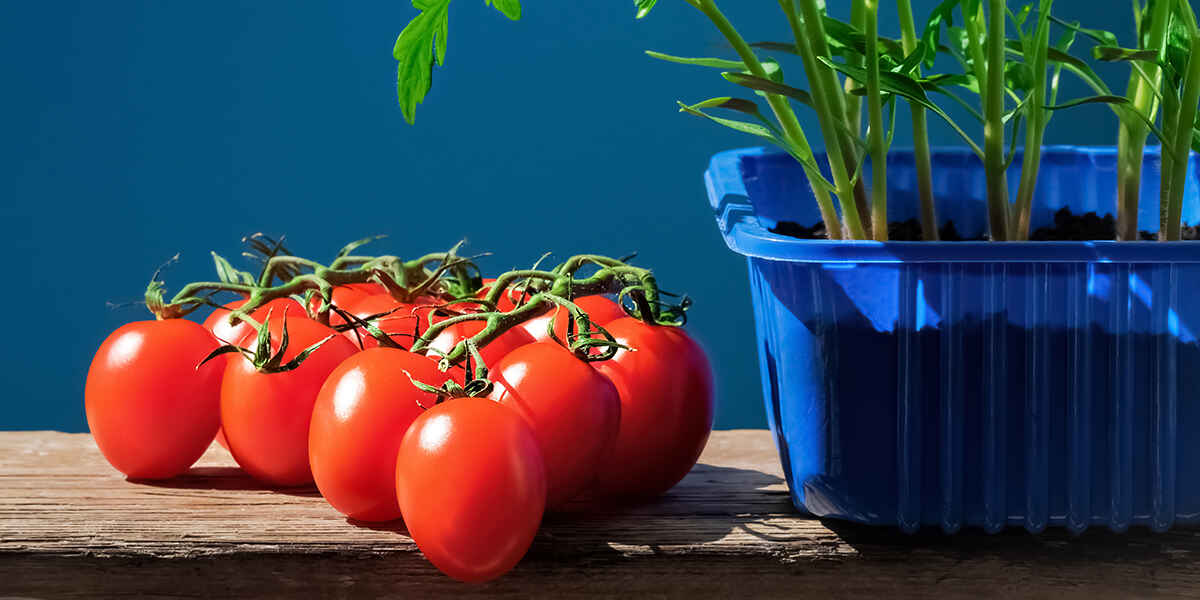
Gardening Made Easy: Try Your GrowBox Risk-Free for a Year!
With the GrowBox planter, you don’t have to worry about whether you understand the right balance of calcium for tomato plants. The Nutrient Patch delivers a continuous supply of premium fertilizer and vital nutrients, like calcium, to support healthy growth.
Even better, the GrowBox is self-watering, and our patented design ensures the optimal balance of water, oxygen, and nutrition. If you’re worried about supplying enough calcium for your tomato plants, we recommend using Dolomite, our organic soil sweetener that you use right alongside the Nutrient Patch. Place your order for GrowBox online today or call us at (800) 519-1555 to order over the phone.

